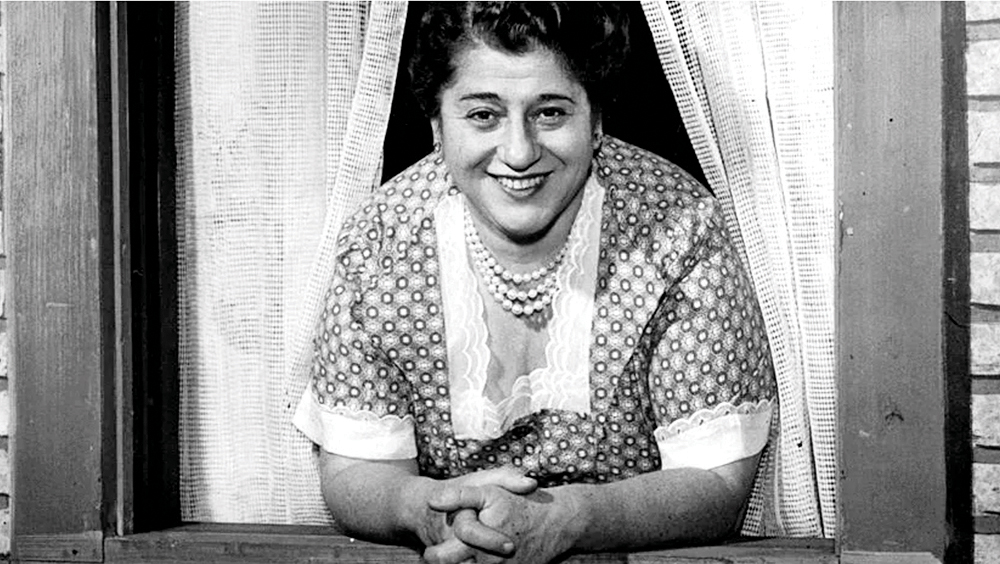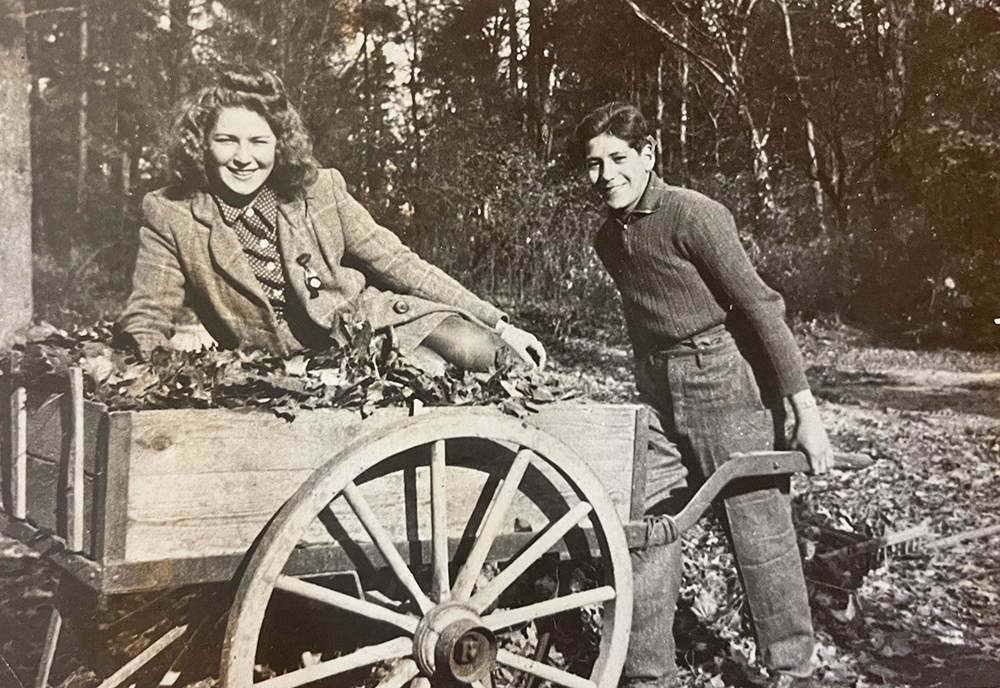
I met Aviva Kempner years ago in her Washington, DC home, when she had already made documentaries for over 20 years. When we met again, about two weeks ago, at Lincoln Center’s Library for the Performing Arts, she was still making them. She was researching archival materials and screening Ben Hecht’s The Front Page, in preparation for a documentary about the famed screenwriter, activist, fierce supporter of Israel, and author of Perfidy. The focus of her visit, though, was the screening of A Pocketful of Miracles: A Tale of Two Siblings, her newest film, at two venues–Manhattan’s New Plaza Cinema and the JCC of the Upper West Side. The film was doubly screened on March 17- at a matinee at the Museum of the Jewish Heritage and in the evening at New Plaza.
The upcoming Hecht film aligns with the genre that has brought Kempner international critical acclaim, both within and outside the Jewish world. She wants to showcase unsung Jewish heroes. And so, each of her six documentaries is dedicated to another hero. How and when did Kempner determine that this would be her life purpose?

It started after Kempner’s graduation from Antioch Law School, where she did well academically but didn’t pass the bar. She had been involved in social action campaigns, and so by 1979, had explored some other options. Then, on a visit to her family’s home, she found herself transfixed by photos of the Holocaust, and particularly those of Image Before My Eyes the recently published photojournalistic chronicle of life before the Shoah.
There was something about the Holocaust that made her consider filmmaking, notwithstanding the fact that her mother, Helen Ciesla Covensky and uncle, David Chase (who changed his name from Ciesla) were survivors. She had good friends in that industry and had employed film in her DC activism. In 1980, Kempner, determined to make a film about fighting the Nazis, concentrated on the first armed resistance, an outgrowth of the Vilna Ghetto.
Intentions are one thing, but how does one get from law school to becoming an award-winning director without film school training? Film production is capital intensive. Her uncle David, whose own wartime experiences attuned him to the topic, provided seed money. Kempner received a grant from the National Endowment for the Humanities. She established The Ciesla Foundation, a non-profit, to formalize her film work and provide a venue to consolidate her funding sources.

Kempner learned from Joshua Waletzky, the distinguished documentary filmmaker of Image Before My Eyes. He directed Partisans of Vilna, the first film she produced; she directed the others. These were largely poet-partisans, the first unsung heroes that Kempner brought back to life. The film’s soundtrack, which contains many of their songs, was nominated for a Grammy. Ironically, the film premiered at the Berlin Film Festival in 1986.
For her next three films, Kempner continued to introduce unsung Jewish heroes, and a heroine, to American audiences. While attending the premiere of Partisans of Vilna, Kempner heard that Hank Greenberg, her father’s hero, had passed. Greenberg “had gone to the synagogue instead of the stadium” in 1934, at the pinnacle of his career, and at what was then the height of American antisemitism. Thus, The Life and Times of Hank Greenberg (1998) was born.
It was followed by Yoo-Hoo, Mrs. Goldberg, (2009), which tracked the life and impact of Gertrude Berg’s 25- year TV run, beginning in 1949, as the matriarch of a very visibly Jewish family. Some American audiences had never met or interacted with a Jew. The Goldbergs’ introduction to Jewish immigrant customs and culture was in keeping with Kempner’s desire to have her films educate, as much as to entertain people. Certainly, her next film reflects that.
At a discussion on Martha’s Vineyard between Rabbi David Saperstein and African American civil rights activist and politician Julian Bond, Kempner learned that Bond’s father had benefited from a grant-generating fund established by Julius Rosenwald, the Sears Roebuck Chairman/philanthropist. This prompted Kempner to recount Rosenwald’s enduring friendship and collaboration with pioneering educator Booker T. Washington, one that resulted in the construction of over 5300 Rosenwald schools in the rural South. Kempner’s next film. Rosenwald (2015), opened to critical acclaim, and had a mainstream commercial, as well as a film festival run.
Her next film moved baseball’s Moe Berg from the ballpark to the intrigues of WWII’s Office of Strategic Services (OSS), the predecessor of the CIA. Philanthropist William Levine fully funded the film. This eliminated a major hurdle for Kempner, as production delays are often due to funding difficulties. The Spy Behind Home Plate (2019) follows Berg’s career on and off the field. The real passion project for Kempner, though, was to be able, in her 70s, to tell the story of her family’s own unsung heroes.
For Kempner, those unsung heroes were her Sosnowicz-raised mother and uncle, Helen (Hanka) and David (Dudek) Ciesla. Helen lived as a Gentile under false papers, and David (Ciesla) Chase, who was interned in Auschwitz with his father, later escaped from the camp’s liquidation. The rest of their immediate family was killed. Harold Kempner, a U.S. Army officer and journalist, met and married Helen in Berlin; Aviva was born there in 1946. Her brother Jonathan followed several years later.

Despite the postwar chaos of refugees trying to locate loved ones, David was miraculously reunited in Germany with Helen. Both siblings, remarkably, rebounded from their losses and traumas. Helen became an accomplished artist; David flourished as a global entrepreneur and major donor to a range of institutions.
It was only through the Shoah Foundation that Helen and David fully disclosed their Holocaust histories. Kempner selected poignant excerpts from these testimonies, added prewar photos from Sosnowicz, post war home movies, family photos from Germany and the U.S., and included additional archival material made available by extended family, YIVO, and Yad Vashem. Both Helen Ciesla Covensky and David Chase have passed, but the film’s most recent footage depicts Helen as a successful painter and David as a benefactor to Jewish and non-Jewish causes.
The current screenings of A Pocketful of Miracles: A Tale of Two Siblings bring closure to Kempner’s passion project. One hopes that her skillful renderings of unsung, heroic Jews will continue for some time.
Rachel Kovacs, PhD, who teaches communication at CUNY and Judaics locally, is also a PR professional, freelance writer, and theater reviewer for offoffonline.com. She trained in performance at Brandeis and Manchester Universities, Sharon Playhouse, and the American Academy of Dramatic Arts. She can be reached at [email protected].









